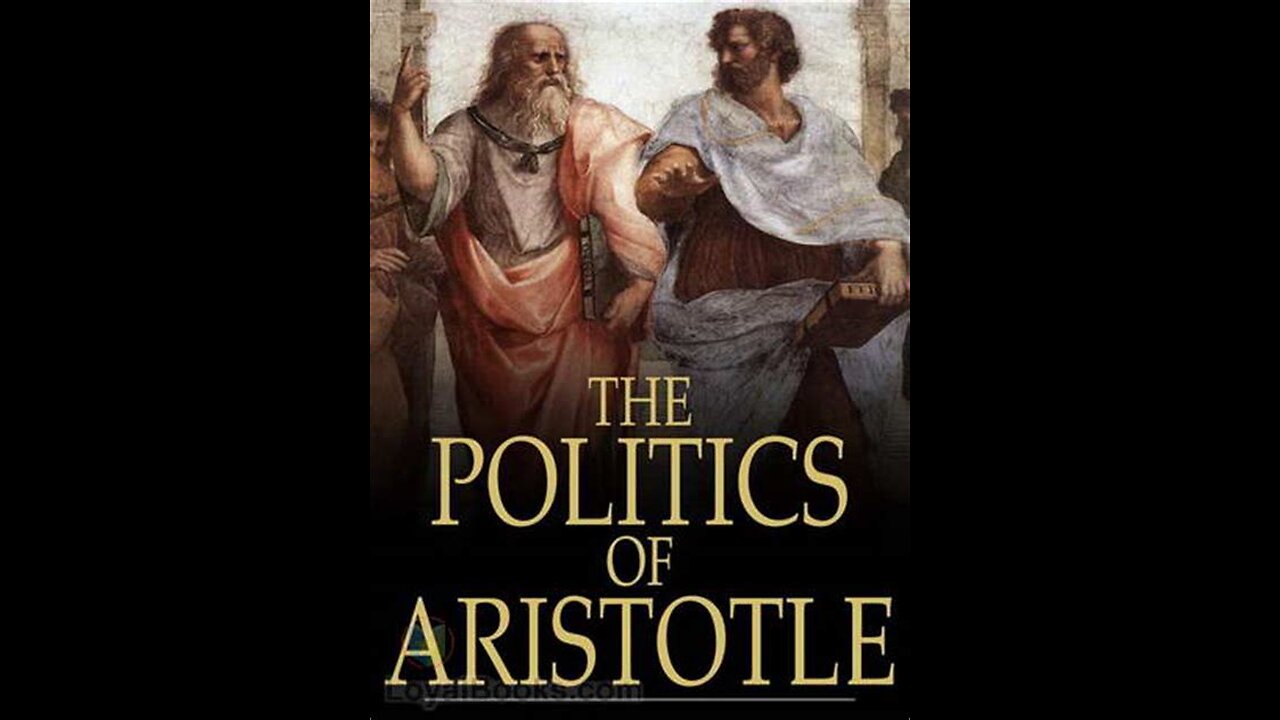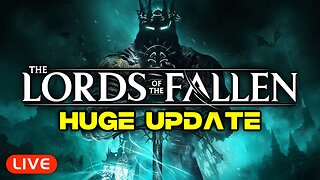Premium Only Content

The Politics by Aristotle | Summary and Critique
Buy Here: https://amzn.to/3BZAN4Y
"""The Politics"" is a philosophical work written by Aristotle in the 4th century BCE. It is one of the most influential works in political philosophy and addresses various aspects of political theory, including the nature of the state, different forms of government, and the ideal political system.
Aristotle begins ""The Politics"" by examining the nature of the state and its role in human life. He argues that humans are political beings by nature and that the state is a natural and necessary institution for organizing and regulating society. According to Aristotle, the purpose of the state is to promote the common good and enable its citizens to live a virtuous and flourishing life.
A major focus of the book is the classification of different forms of government. Aristotle identifies three main types of government: monarchy (rule by one), aristocracy (rule by the few), and polity (rule by the many). Each form of government has its strengths and weaknesses, and Aristotle discusses their potential for degeneration into their corrupt counterparts: tyranny, oligarchy, and democracy, respectively.
Aristotle argues that the best form of government is a polity, which combines elements of democracy and oligarchy. He believes that a well-balanced and moderate system, where the middle class holds political power, is more likely to promote stability, justice, and the common good.
""The Politics"" also explores topics such as citizenship, education, property ownership, and the role of law in a just society. Aristotle emphasizes the importance of education in fostering virtuous citizens and the significance of a well-ordered legal system in maintaining social order and justice.
Critique of ""The Politics"" includes the following points:
1. Limited Scope: Critics argue that Aristotle's political philosophy is rooted in the specific context of ancient Greece and does not sufficiently account for the complexities and diversity of modern societies. They contend that his theories may not be applicable or relevant to contemporary political systems and challenges.
2. Patriarchal Bias: Aristotle's views on gender and the role of women within the state have been criticized for their patriarchal biases. He argues that women are naturally subordinate to men and should have limited participation in political life. Critics argue that his exclusion of women from political rights perpetuates gender inequality.
3. Slavery and Inequality: Aristotle's acceptance of slavery as a natural and necessary institution has drawn criticism. His defense of slavery and his failure to question or challenge the inequality inherent in the slave-master relationship conflict with contemporary notions of human rights and equality.
4. Idealistic Approach: Some critics argue that Aristotle's idealistic approach to politics may overlook the practical challenges and complexities of governance. They claim that his emphasis on virtue and the common good may neglect the realities of power struggles, self-interest, and competing interests that often shape political systems.
5. Lack of Historical Context: Critics contend that Aristotle's political philosophy lacks a comprehensive understanding of historical and social contexts. They argue that his theories do not sufficiently account for the specific historical circumstances, cultural differences, and socio-economic factors that influence political systems.
Despite these critiques, ""The Politics"" remains a significant work in political philosophy, offering valuable insights into concepts such as citizenship, government, and justice. Aristotle's exploration of different forms of government and his emphasis on the importance of moderation and virtue continue to inform contemporary discussions on political theory and the ideal organization of society."
-
 3:48:12
3:48:12
Akademiks
4 hours agoDay 2/30. Drake Challenges UMG and calls them Desperate. Ye Backs Drake. Lil Wayne Dont Fw Superbowl
66K8 -
 8:06:34
8:06:34
MyronGainesX
22 hours ago $22.64 earnedKarmelo Anthony Merch, Ashley EXPOSES Elon, Filipino President Punishes Vitaly, Iran War Pause!
59.8K12 -
 2:41:54
2:41:54
TimcastIRL
7 hours agoMASS SHOOTING At Florida State, Anti Trump Rumors ERUPT, MANGIONE EFFECT w/ Maggie Moda| Timcast IRL
191K110 -
 2:36:29
2:36:29
The Illusion of Consensus
1 day agoExploring Holistic Psychiatry with Dr. Aruna Tammala: Nervous System Regulation, Diet, Supplements, Self-love, and Social Connection
26K -
 2:44:57
2:44:57
Laura Loomer
6 hours agoEP115: Democrats' Pet Muslims Bite Back
46.9K15 -
 18:37
18:37
SantaSurfing
10 hours ago4/17/2025 - Trouble for Tish/Google/Jerome! Trump stops a war!
31.5K17 -
 49:39
49:39
Man in America
14 hours agoThey’re Feeding Us POISON and Calling It Dinner w/ Kim Bright
51.1K16 -
 3:40:07
3:40:07
BrancoFXDC
4 hours ago $2.74 earnedWarzone Rounds - DAY 10 of no Internet
30.9K2 -
 1:17:17
1:17:17
RiftTV/Slightly Offensive
9 hours ago $11.21 earnedMASSACRE at FSU: Who was Actually RESPONSIBLE? | Slightly Offensive
48K17 -
 3:18:46
3:18:46
SilverFox
6 hours ago🔴LIVE - HUGE UPDATE! LORDS OF THE FALLEN 2.0
29.9K